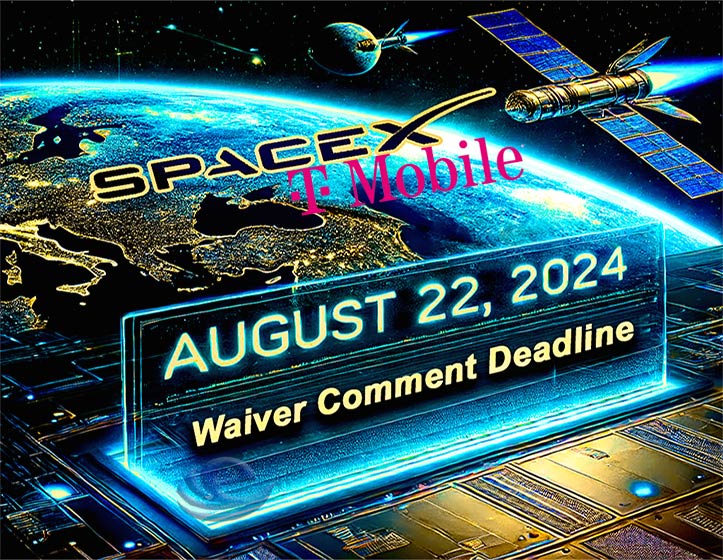
The deadline for responses to SpaceX’s waiver request is August 22, with replies due by August 29. As the FCC deliberates on this contentious issue, the outcome could have significant implications for SpaceX and T-Mobile and the broader landscape of wireless and satellite communications.
SpaceX’s ambitious plan to offer cellular service in partnership with T-Mobile through its Starlink satellite system faces significant opposition from major telecom giants AT&T and Verizon.
The two companies have submitted filings to the Federal Communications Commission (FCC) urging regulators to reject SpaceX’s crucial waiver request. They claim that the satellite system could interfere with and degrade the quality of terrestrial mobile broadband networks.
The waiver in question would allow SpaceX to operate its satellites beyond the normal radio frequency parameters set by the FCC, specifically increasing the allowable power flux-density limits for out-of-band emissions. SpaceX argues that this change must provide adequate supplemental coverage for T-Mobile’s cellular network via its satellites.
However, AT&T and Verizon strongly disagree, stating that such a move would cause significant disruptions to their networks. This potential for disruption is a key concern that should be carefully considered by the FCC and all parties involved, they claim.
AT&T’s submission to the FCC highlighted the potential impact of SpaceX’s proposal, noting that their technical analysis predicts an 18% average reduction in network downlink throughput in an operational and representative AT&T PCS C Block market deployment. The company further emphasized that the requested waiver would result in ‘unacceptable harmful interference’ to existing terrestrial mobile operations, a concern that should be taken seriously by all stakeholders.
Verizon echoed these concerns, predicting that SpaceX’s plan would lead to significant performance issues for wireless phones. The company argued that SpaceX’s proposed changes would result in an interference-to-noise (I/N) ratio well above the threshold that the International Telecommunication Union (ITU) considers acceptable for protecting terrestrial devices. Verizon’s filing also warned that the proposal could “undermine the Commission’s core goal of protecting incumbent terrestrial licensee operations from SCS satellite operations in adjacent bands.”
In response, SpaceX has maintained that its proposal will not harm other wireless operations and has accused its competitors of attempting to stall the approval process. In a recent meeting with FCC staff, representatives from SpaceX and T-Mobile expressed confidence that their plan would not cause harmful interference to terrestrial operations, including T-Mobile’s network, which operates in the adjacent PCS C Block.
SpaceX and T-Mobile have also suggested that the opposition from AT&T and Verizon is part of a broader strategy to delay the deployment of SpaceX’s supplemental coverage service, which aims to provide widespread and reliable cellular connectivity via satellites. Despite the opposition, SpaceX has launched over 100 satellites with direct-to-cellular capabilities and claims to have made significant progress in testing the early network, demonstrating what it describes as the ‘robust capabilities’ of the system. This proposal, if successful, could revolutionize the way we experience cellular connectivity.
Despite SpaceX’s assurances, AT&T and Verizon are not alone in their opposition. Satellite companies EchoStar (which owns Dish and Hughes) and Omnispace have also filed objections with the FCC, further complicating SpaceX’s efforts to secure the necessary regulatory approvals.

















